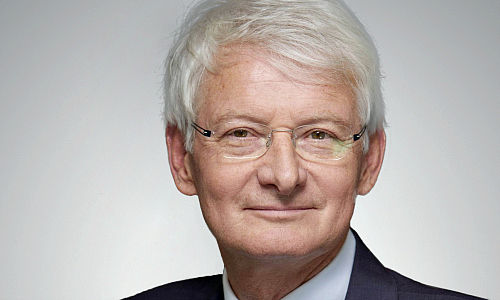Criticism of negative interest rates doesn't mean Swiss monetary policy is wrong, Jean-Pierre Danthine tells finews.com. He views demands for the central bank's profits as well as helicopter money as pipe dreams.
Jean-Pierre Danthine, it is ten years since the financial crisis, and we still have record low interest rates. Are you surprised that it takes such a long time to return to a more normal monetary policy?
We shouldn’t be too surprised, given that the crisis was the biggest financial and economic slump since the great depression. The big build-up of debt in particular was a key factor in this. The shadow of the recession was very dark and we are still living under that shadow.
We’ve seen two major fault lines emerge during that time that have never been fully resolved. We believe for instance that banks are now much sounder, but it has taken a huge effort and in certain countries there are still a large stock of non-performing loans.
What’s the other fault line?
The European project. In Switzerland, we depend a lot on the Eurozone and this is the weakest of the large economic regions of the world. Europe is weak because it is an incomplete construct.
Any other elements that make a recovery so difficult to achieve?
Real rates had declined for much longer, since well before the great recession, because of an oversupply of savings relative to investments – the savings glut hypothesis of Ben Bernanke, which still holds true today.
«I don't expect an increase in interest rates anytime soon»
The crisis was a wake-up call. Things had been going so well for so long that people no longer believed that we could have such a long and deep recession. When people woke up and realized that the world is much more dangerous than they thought, they became more prudent in their investments. After the crisis, we saw very limited real investment and therefore we have a lot of precautionary savings, very limited real demand for it and very low interest rates.
Going forward, when do you see a return to higher interest rates?
I don’t expect an increase in interest rates anytime soon and by very much. The best scenario post-crisis was for a slow but long-lasting recovery and a progressive, step-by-step increase in rates. That’s what we got in the U.S., but there was a set-back due to concern about a new slowdown.
Effectively, people are concerned that the recovery has lasted so long, it can’t go on any longer. So, there is a tension between what we need, namely a long and slow recovery, and what people believe, which is how long can a recovery last.
Central banks have also mentioned the global problems as a reason for the continued low-rates-policy.
Of course, there are the geopolitical risks, including policies pursued by Donald Trump, Brexit and Italy to name but a few. This is not an environment conducive to going back up at full speed. The world economy is fragile because of these factors. So, we have had a setback along the road of a slow recovery of interest rates and progressively higher inflation.
The negative effects of low interest rates have come into the focus recently…
- Page 1 of 3
- Next >>




































